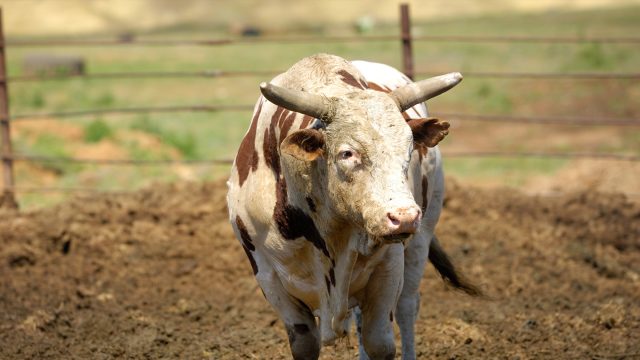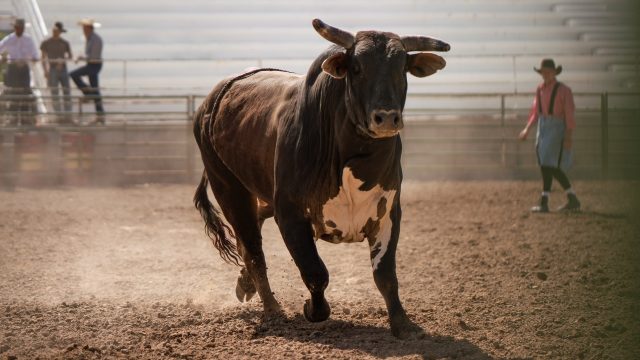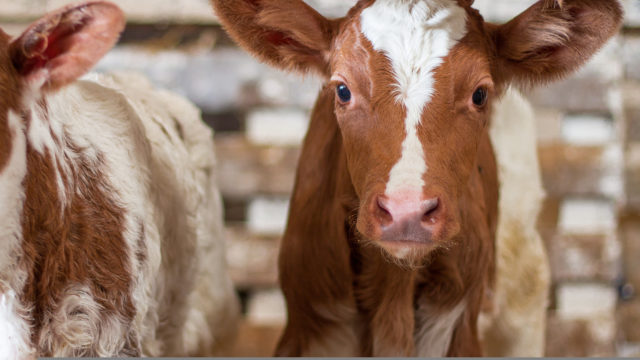
Canadian Student Chapters Challenge Quebec Rodeos

The University of Sherbrooke Faculty of Law and University of Montréal Faculty of Law Student Animal Legal Defense Fund (SALDF) chapters are working together to put an end to the cruel rodeo industry in the province of Quebec, Canada.
Quebec’s Animal Welfare and Safety Act, adopted in 2015, changed the legal status of animals from “things” to “sentient beings [with] biological needs.” The law also prohibits an animal from being subjected to any “abuse or mistreatment that may affect [his or her] health,” and prohibits causing animals “extreme anxiety or suffering.” Although there are exceptions to these provisions, animals used for sport and entertainment purposes are not exempt from the protections of the Act.
In August 2017, the city of Montréal celebrated its 375th anniversary by organizing an urban rodeo. Students from the Sherbrooke and Montréal SALDF chapters joined Professor Alain Roy, from the University of Montréal, in filing for a provisional and permanent injunction to stop the rodeo. They argued that the Montréal rodeo was illegal under the updated Animal Welfare and Safety Act.
From this legal proceeding, the challengers and rodeo came to an agreement which was approved by the Superior Court of Quebec. The agreement allowed Professor Roy to send two experts of his choice (one veterinarian and one animal behaviorist) and a photographer to rodeos in Montréal and St-Tite, which hosts the largest rodeo in Quebec. These individuals had unlimited access to all the rodeo events to collect data on the event. The agreement also provided for the creation of a joint committee, which included three animal welfare specialists chosen by Professor Roy, two members from the Quebec Ministry of Agriculture, Fisheries, and Food, and three members from the Quebec rodeo industry. The evidence collected during the rodeo events was submitted to the joint committee.
The veterinarian who witnessed the events, Dr. Jean-Jacques Kona-Boun, DMV, MSc, DACVAA, concluded: “The rodeo activities held in accordance with the standards in effect in Montréal and St-Tite subject horses and bulls to the risk of injury such as fractures and other serious injuries. The same is true of the calf-roping and steer-wrestling. The psychological distress experienced by all the animal beings used in such activities is also very real.”
According to Professor Roy, Dr. Kona-Boun’s observations and analyses lead to the conclusion that rodeos are in violation of the law, “The treatment of horses, bulls, steers and calves in rodeos is irreconcilable with the provisions of the new law, according to which animals are no longer objects, but ‘beings endowed with sentience’ whose welfare and safety must be assured.”
The committee has one year to submit a report of recommendations to the Quebec Ministry of Agriculture, Fisheries, and Food. In the event that the joint committee is unable to agree upon recommendations, Professor Roy and the students reserved their right to submit this evidence to the court and obtain a judgment on the legality of Quebec rodeos.
SALDF students are completing legal research, administrative tasks, and obtaining funding to finance this project, including a generous grant from the Animal Legal Defense Fund. (Your SALDF chapter can apply for a project grant here.) If successful, this undertaking will put an end to the cruel rodeo industry in Quebec.
This spotlight was submitted by Cara Parisien, president of the University of Montréal SALDF chapter and Chloé Surprenant
Related
-
Los Angeles City Council Unanimously Votes in Favor of a Rodeo Ban Ordinance
Actress Kate Mara joins the Animal Legal Defense Fund and Los Angeles animal advocates in support of ordinance to protect animals from six cruel rodeo practicesDecember 5, 2023 Press Release -
George Mason University Students Urge Ban of Professional Bull Riders After Video Release
Video shows a downed bull with a severely broken leg, struggling to get up, and then being dragged from EagleBank Arena during bull riding eventOctober 6, 2022 Press Release -
Salinas Rodeo Hides Animal Injuries in Violation of California Law
Animal group documents animal suffering, legal violations at Salinas Rodeo.July 6, 2015 Press Release



